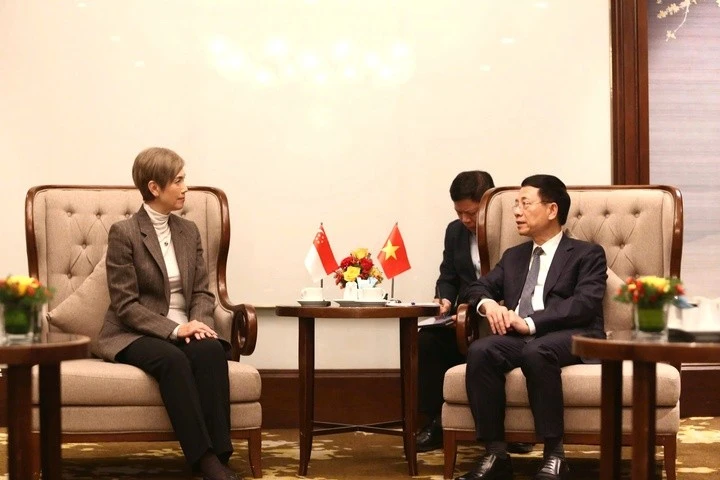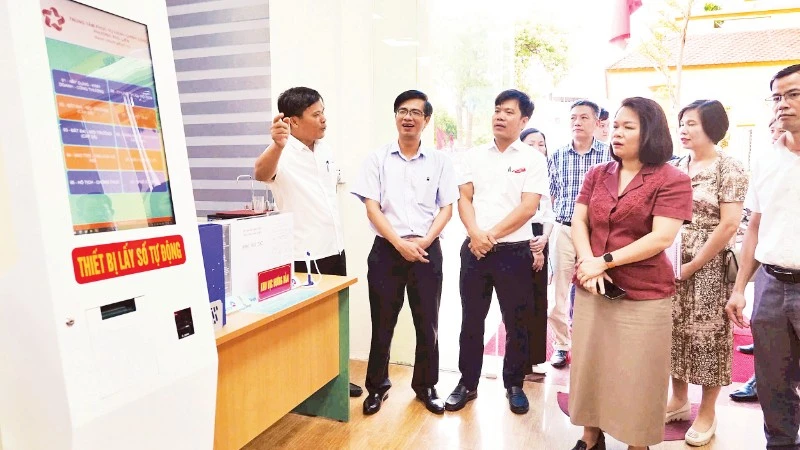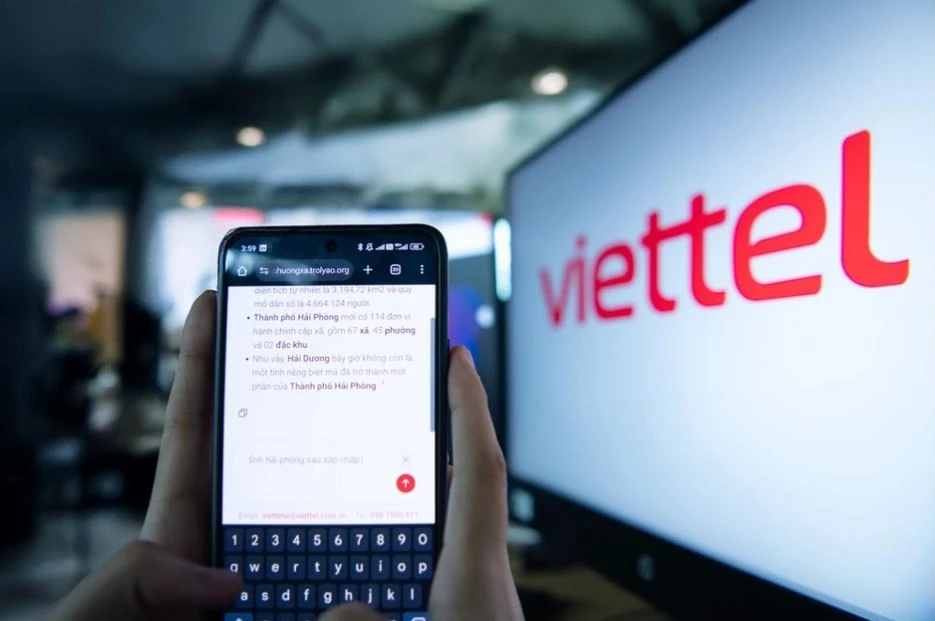More importantly, unlike previous technologies most of which had to be imported, Vietnam has gradually mastered and is now capable of producing 5G equipment, a strategically important step in Vietnam’s development of information and communications technology.
Off to a good start
Viettel was the pioneer in announcing commercial 5G trials in late November with coverage in the Hoan Kiem, Ba Dinh and Hai Ba Trung Districts of Hanoi, where owners of 5G-enabled devices can now use the service for free at a speed of up to 1.5 gigabits per second, far higher than 4G.
Later in mid-December, Vinaphone also announced its 5G coverage in some central districts in Hanoi and Ho Chi Minh City as well as two demonstration centres so that those without 5G devices can experience the new technological features.
Mobifone also quickly caught up by piloting commercial 5G services in Ho Chi Minh City.
According to some experts, mobile carriers’ rush to roll out 5G services at this time is merely competition between brands and does not precisely reflect what the domestic telecommunications market will look like in the future.
With 3G and 4G technologies, Vietnam was a latecomer, but with 5G, Vietnam is one of the frontrunners. Although the trials are just an initial step in the long process to widespread rollout, the carriers’ efforts have demonstrated the local communications sector’s capacity and readiness to provide the new technologies to the people.
With exceptionally fast speeds, extremely low latency and very high density (up to one million devices in one square kilometre), 5G is expected to revolutionise how society functions in the future, especially in the fields of advanced technology, healthcare, transport and education, laying the foundation for Vietnam to master and apply new technologies as well as succeed in its national digital transformation drive.
Taking on challenges to rise up
Vietnam is pioneering 5G, an opportunity to master new technologies and catch up with the development pace of the world. But its position as a trailblazer means Vietnam cannot learn from anyone else’s experience and will have to find its own path to development. 5G will bring with it tremendous opportunities in the future but there are already also quite a few challenges at present.
First of all, carriers face a risk that 5G-enabled devices have not yet been widely popular with consumers at the time of mass rollout and that 5G business models are as of yet not proven to be effective.
In addition, demand for this technology is not yet very high, making carriers find it hard to balance costs and benefits. However, experts state that if Vietnam wants to develop, it needs to see a radical change of mindset and it must dare to meet the challenges head on, otherwise Vietnam will always be a technologically backward country.
The history of Vietnam’s communications sector has shown that successes have followed the appropriate decisions to embrace new technologies. In the early years of the Doi Moi reform when 95% of the world was still using analogue communications, Vietnam took the bold step and adopted digital communications immediately, resulting in the country achieving remarkable progress in this sector.
Then in 1997, Vietnam once again showed its progressive mindset by agreeing to open the door to the internet, opening a new living space and digital space for each of its citizens, connecting Vietnam with the world and laying a significant foundation for Vietnam to enter into important agreements such as the bilateral trade agreement with the United States and accession to the World Trade Organisation, helping deepen the country’s international economic integration and speed up national development.
The launch of 2G technology in 1993, followed by 2.5G, 2.75G and then 3G and 4G, has brought mobile phones, a luxurious item during the 1990s, to 100% of the population at the lowest possible cost. But it should be acknowledged that when transitioning to 3G and 4G, Vietnam fell behind the rest due to a failure to update policies and the management mindset, a lag in technology and lack of new competitive factors.
The fourth industrial revolution is taking place at a rapid pace around the world and 5G is one of the key technologies in this revolution thanks to its high speeds and low latency, essential to many sectors. Therefore all countries should take advantage of this opportunity and Vietnam is also taking proactive steps to get on-board the 5G train.
Vietnam has certain advantages as it can produce many types of equipment and infrastructure necessary for 5G. The Ministry of Information and Communications has affirmed that mastering 5G equipment is strategically significant nationally and Vietnam is one of the few countries capable of doing so. From now on Vietnam will actively act as a pioneer alongside the rest of the world with regards to technology, helping further stimulate the communications sector, making an even greater contribution to the country’s socio-economic development.
















